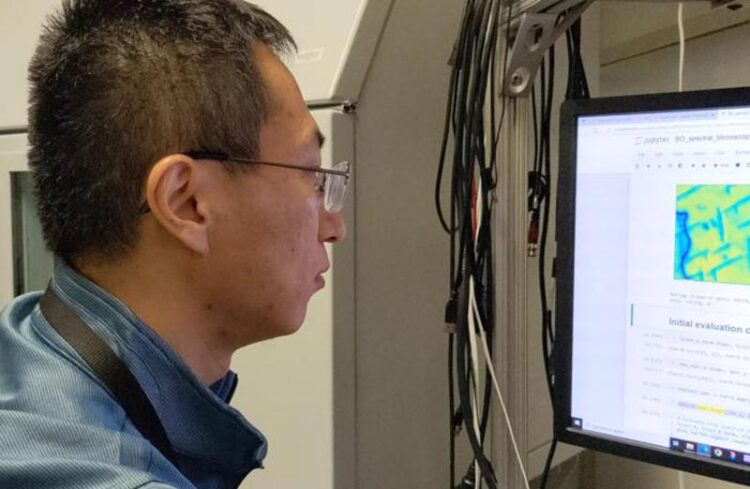Human-AI coworking

Yongtao Liu, R&D associate at ORNL's Center for Nanophase Materials Sciences. Credit: ORNL, U.S. Dept. of Energy
Credit: ORNL, U.S. Dept. of Energy
New system combines human, artificial intelligence to improve experimentation.
Though artificial intelligence decreases human error in experimentation, human experts outperform AI when identifying causation or working with small data sets.
To capitalize on AI and researcher strengths, ORNL scientists, in collaboration with colleagues at National Cheng Kung University, Taiwan, and the University of Tennessee, Knoxville, developed a human-AI collaboration recommender system for improved experimentation performance.
During experiments, the system’s machine learning algorithms, described in npj Computational Materials, display preliminary observations for human review. Researchers vote on data, telling the AI to show similar information or change direction, akin to a streaming service generating suggested content based on users’ activity. After initial guidance, algorithms improve to illuminate relevant data with little human input.
“The foundation of this research is basically not the quantity of the data but the quality of the data that we are aiming for,” ORNL’s Arpan Biswas said.
The experiments and autonomous workflows were supported by the DOE-funded Center for Nanophase Materials Sciences, and algorithm development was supported by the DOE-funded MLExchange project to expand machine learning development at national laboratories.
Media Contact
Kaylee Coffman
DOE/Oak Ridge National Laboratory
coffmanke@ornl.gov
Original Source
All latest news from the category: Information Technology
Here you can find a summary of innovations in the fields of information and data processing and up-to-date developments on IT equipment and hardware.
This area covers topics such as IT services, IT architectures, IT management and telecommunications.
Newest articles
Faster, more energy-efficient way to manufacture an industrially important chemical
Zirconium combined with silicon nitride enhances the conversion of propane — present in natural gas — needed to create in-demand plastic, polypropylene. Polypropylene is a common type of plastic found…

Energy planning in Ghana as a role model for the world
Improving the resilience of energy systems in the Global South. What criteria should we use to better plan for resilient energy systems? How do socio-economic, technical and climate change related…

Artificial blood vessels could improve heart bypass outcomes
Artificial blood vessels could improve heart bypass outcomes. 3D-printed blood vessels, which closely mimic the properties of human veins, could transform the treatment of cardiovascular diseases. Strong, flexible, gel-like tubes…





















